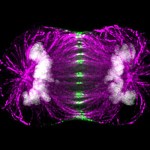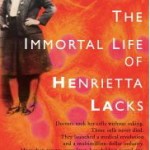History of Science and Medicine
Big week here at Culture Dish! The Immortal Life of Henrietta Lacks and its author (yours truly) were on the cover of Publishers Weekly (please note: THRILLED!). Inside that issue was a profile of me with some of book's backstory, a short excerpt from the book (longer excerpt coming soon in O, the Oprah Magazine), also a story I wrote about the crazy book tour I'm organizing (posted about previously here). But that was just the beginning of this week's HeLa developments. More about that after the jump, but first, a warning: given the fact that my book is about to be released and…
Calling all academics: If you'd like a free advanced copy of my book, The Immortal Life of Henrietta Lacks, get thee to Random House's academic blog and request a copy quick, while supplies last (which probably won't be long at the rate things are going). See below for more information on the book, and advanced praise. Added bonus: If you teach the book this spring, you can also get me to come speak at your school/in your classes as part of my book tour.
Here's Publishers Weekly on The Immortal Life of Henrietta Lacks:
Science journalist Skloot makes a remarkable debut with
this multilayered…
Lots of excitement and news about my book, The Immortal Life of Henrietta Lacks (aka HeLa),
which hits stores February 2nd (after ten years in the works). It just got a starred review in Publishers Weekly and in Booklist, and was chosen as a Barnes & Noble Discover Great New Writers title for Spring 2010. Culture Dish is very excited about all of this. But the big news for this post is that I'm organizing a three-month-long book tour that will have me speaking nationwide at
universities, scientific organizations, bookstores, book groups, high schools, and
more. If you'd like me to speak…
It's fitting that today -- the day after the 58th anniversary of Henrietta Lacks's death -- the Nobel Prize in medicine has been awarded to Elizabeth Blackburn, Carol Greider, and Jack Szostak for the discovery of how telomeres and the enzyme telomerase protect chromosomes from degrading over time. In the late eighties, a scientist at Yale used Henrietta's cells (aka HeLa, pictured left) to discover that human cancer cells contain telomerase, which regenerates their chromosomes and prevents them from aging and dying like normal cells. This is one of the reasons why Henrietta's cells…
Lots of excitement here at Culture Dish: The final cover for The Immortal Life of Henrietta Lacks has arrived (see left). And ... <drum roll> ... the the book's first pre-publication review has hit the press: In the issue coming out this Monday, Publishers Weekly gives The Immortal Life a starred review, calling it, "a remarkable debut ... a rich, resonant tale of modern science, the wonders it can perform and how easily it can exploit society's most vulnerable people." (wOOt!) Full review here and here:
"Science journalist Skloot makes a remarkable debut with
this…
Can't blog ... lost in AMAZING ARCHIVE OF MEDICAL IMAGES! Today from BoingBoing:
This previously unreported archive at the National Museum of Health and
Medicine in Washington, D.C., contains 500,000 scans of unique images
so far, with another 225,000 set to be digitized this year. Mike Rhode, the museum's head archivist, is working to make tens of
thousands of those images, which have been buried in the museum's
archive, available on Flickr. Working after hours, his team has posted
a curated selection of almost 800 photos on the service already,
without the express permission…



